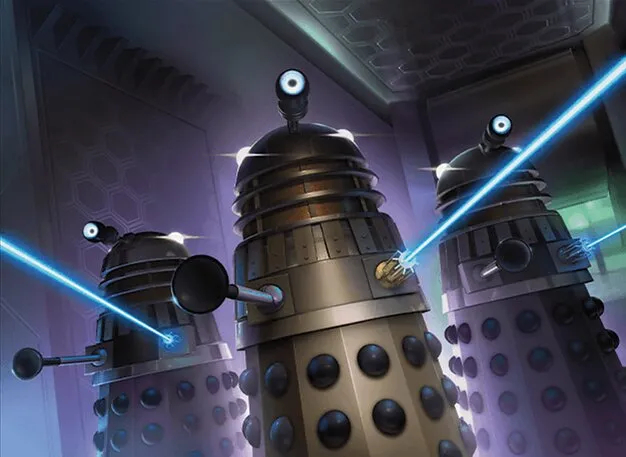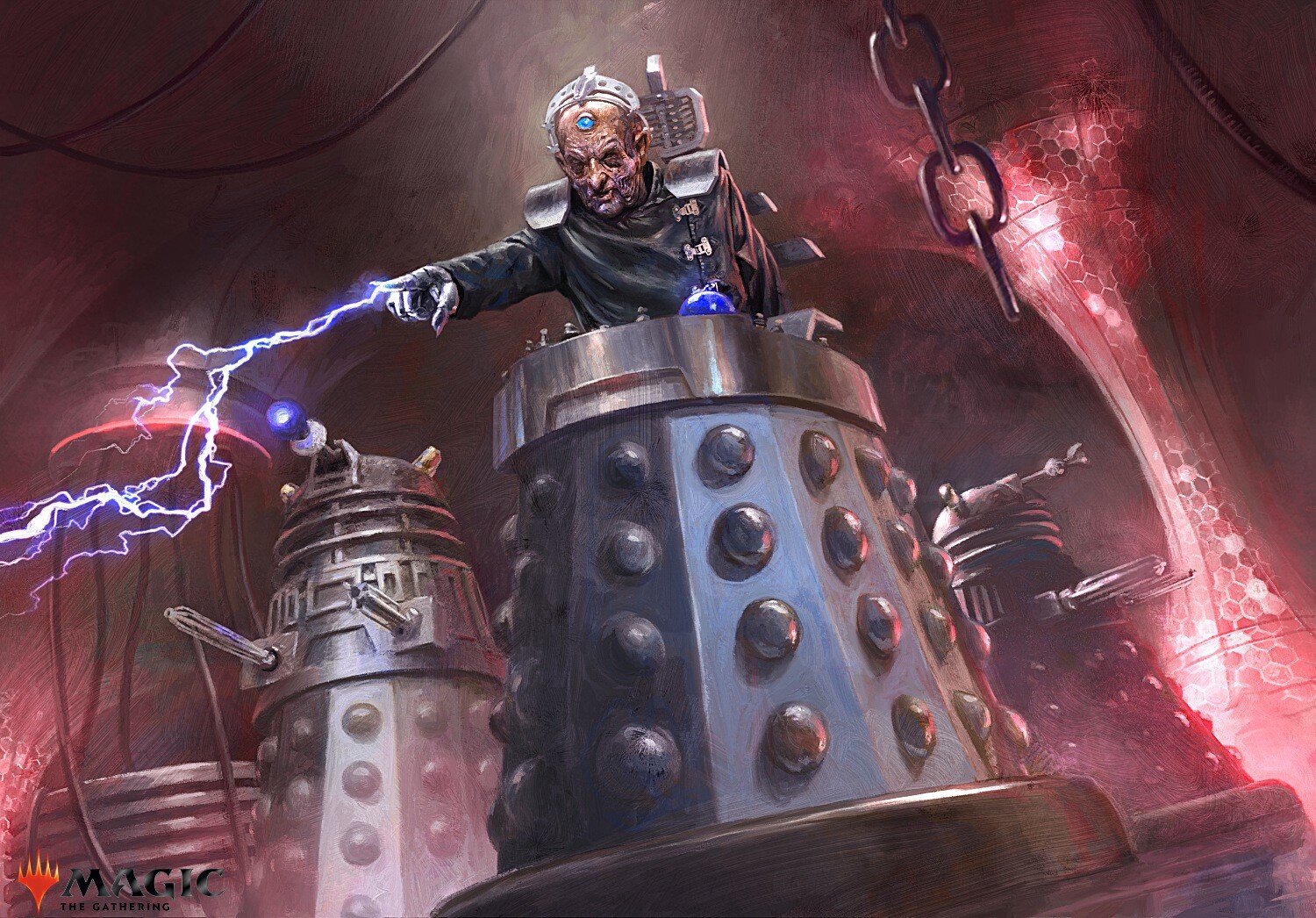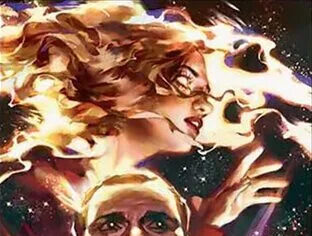MTG Banned and Restricted List Update
Wizards has dropped a bomb on us. Let’s take a look!
Announcement Date: April 4, 2016
Effective Date: April 8, 2016
Magic Online Effective Date: April 13, 2016
Modern:
Eye of Ugin is banned.
Ancestral Vision is unbanned.
Sword of the Meek is unbanned.
Vintage:
Lodestone Golem is restricted.
The list of all banned and restricted cards, by format, is here. The full list of cards banned in Modern is here. The full list of cards banned and restricted in Vintage is here.
Next B&R Announcement: July 18
EXPLANATION OF CHANGES
As we approach the release of a new set, Wizards of the Coast examines tournament results from each competitive format. If a format becomes very imbalanced, or too many games are not interactive, we examine the cause.
Here are our changes:
Modern
Since Pro Tour Oath of the Gatewatch, Eldrazi decks have been dominating the Modern tournament environment. At the Pro Tour, Eldrazi were represented in six of the Top 8 decks, including Jiachen Tao’s winning deck. On the weekend of March 6, three Modern Grand Prix were held, in Melbourne, Bologna, and Detroit. There were 24 players who had Top 8 performances, fourteen of whom were playing Eldrazi, including two of the three winning decks.
Results on Magic Online are quite similar. Eldrazi decks are running rampant. The format is very imbalanced, and far from a healthy mix of competitive decks.
While the Eldrazi decks have a lot of powerful cards, the powerful draws are generally based on the mana acceleration from Eldrazi Temple and Eye of Ugin. Rather than ban multiple creatures, we find it preferable to ban a single land. We made our choice by examining how one would build a deck, and how it would play, with the land that remains legal.
If Eldrazi Temple is banned and Eye of Ugin is legal, the deck focuses on playing multiple lower-casting-cost Eldrazi per turn. A discount of two mana for each Eldrazi becomes a discount of four or more over the course of a turn. The deck becomes more explosive, more focused on a single build, and the powerful draws are still not interactive.
If Eye of Ugin is banned and Eldrazi Temple is legal, the mana supports a more diverse set of builds. There still is a small percentage of games with two Eldrazi Temples powering out huge plays. However, there are more games where only one Temple is drawn, and the deck is powerful yet beatable.
We also considered that Eye of Ugin is played in other decks, most notably “Tron” decks using Urza’s Power Plant and similar lands. While the Eye does add a lot of late game power to the deck, the core gameplay of the deck—casting large threats with the Tron lands—remains intact. It is regrettable that banning Eye of Ugin also impacts these Tron decks, but weighing everything in consideration, we feel this is the correct solution to the Eldrazi menace and makes Modern the most fun overall.
For these reasons, Eye of Ugin is banned in Modern.
When Battle for Zendikar and Oath of the Gatewatch were in development, the development team knew that all the Eldrazi creatures in the block would be more powerful in Modern because of these two-mana lands. While there was some risk that Eldrazi decks could be too strong, there was also the possibility that a fun new competitive deck would emerge. At the Pro tour, only about eight percent of the field played Eldrazi deck—the same amount played Infect, and more played Burn or Affinity. It was not clear to most professional players that the Eldrazi deck was too strong, or even as strong as the alternatives. In such a big format, it is very difficult to know how strong a deck will turn out before holding high-level tournaments, and much of the enjoyment of Magic for many players is seeing that play out. Ultimately, as the results of the Pro Tour and Grand Prix have shown, the Eldrazi deck has proven to be too strong and has had an unhealthy effect on the format.
We also looked at our banned lists for cards that could increase the richness of the format. Currently, the format tends to favor aggressive decks and quick-kill combo decks. We looked for cards that tend to work best in slower decks.
When the initial banned list was made for Modern, we looked at decks that had dominated similar formats and used those to guide our process. While there is some risk that these cards will cause further problems, we think that risk is small. Sometimes unbanning these cards doesn’t create any change in the competitive metagame. In that case, players who love playing that deck now have a new deck to work with.
Ancestral Vision is a very efficient card-drawer. Historically it has been strong in decks using the cascade mechanic, which immediately casts Ancestral Vision from the deck to draw three cards. It has also been strong in blue-based decks that are playing a longer, attrition-style game. With the current banned list, including Bloodbraid Elf, the types of cascade cards usually played with Ancestral Vision are not available. While there are some control decks that would use Ancestral Vision, it is an underplayed portion of the metagame. To allow for an increase in the number of blue-based control or attrition decks, we are unbanning Ancestral Vision.
Sword of the Meek makes a powerful, but slow, combination with Thopter Foundry. This combination was part of a format-dominating deck in the Extended format that Modern replaced. However, another element of that deck (Dark Depths, used with Vampire Hexmage) is also banned. Sword of the Meek might enable some slower combo decks, perhaps of the combo-control variety. It could be used as an alternate win condition in Lantern Control, which is powerful when unexpected but not currently a large part of the metagame. To allow for an increase in the number of controlling combo decks in the format, we are unbanning Sword of the Meek.
Vintage
We continue to see an imbalanced metagame. In particular, Mishra’s Workshop–based decks continue to be significantly overrepresented, reducing the competitive metagame. While this issue could be solved by restricting the namesake card, if possible we would like to keep the deck at a competitive level, but played to an extent that the format is more diverse overall. Lodestone Golem leads to some of the less-interactive games. We are hopeful that limiting Workshop decks to one copy of the card leaves the deck at an appropriate strength. For that reason, Lodestone Golem is restricted.




